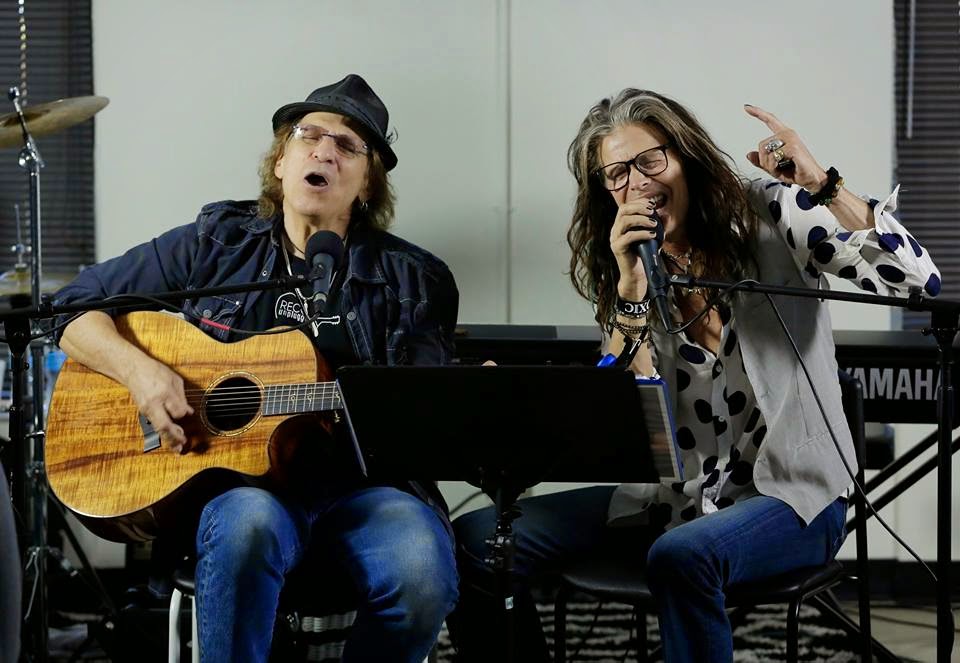

Each location has a studio where we record individualized soundtracks for each client (some songs that the clients have chosen, we’ve chosen or that they have witnessed performed) and then assign a specific song for their treatment plan which is used to combat those symptoms. Some of the core issues for clients are distorted perceptions, low self-esteem, poor self-image, negative behaviors, etc. Richie Supa and Steven Tyler of Aerosmith at Recovery Unplugged (Image source: Recovery Unplugged)ĭrugs and alcohol are a symptom of the problem.

Music assists clients with post-acute withdrawal symptoms as well as releasing the pleasure centers in the brain, including serotonin levels and endorphins. We were exposed to a form of music in our mother’s womb through the heartbeat. Music can get you up and move and participate in treatment. How does music truly engage the patient in a positive, impactful way throughout the recovery process?Įveryone loves music. Not to mention that the utilization of music improves the mood of the practitioners, clinicians, and all staff which makes them more effective as well. Recovery Unplugged uses music(and everything related to it including lyrics, songs, Live performances,vibrations etc.…) as a catalyst to establish rapport with the client, engage the client, break down their defenses, help them stay in the present, assist them in emoting as well as an anchor in order to retain the necessary perceptions, skill sets and behaviors need it for long-term recovery. Music is the only form of communication that consistently reaches the soul. We believe the long-lasting change needed for long-term recovery happens in the soul, not the head. We use it in everything we do from the preassessment to the discharge plan. Music is not an add-on at Recovery Unplugged.
RECOVERY UNPLUGGED NASHVILLE PROFESSIONAL
Pellinger recently penned the novel Music Is Our Medicine, an in-depth account of his own personal and professional journey in the addiction treatment landscape. A veteran of the addiction treatment industry, Pellinger has combined his decades of experience with his deep love of music to create the Recovery Unplugged treatment model that has helped so many patients reclaim their lives from addiction. At the head of Recovery Unplugged is Paul Pellinger, the co-founder, and chief strategy officer. Although 85% of the clients are not musicians, unique to the program is that it targets working musicians and artists who are frequently exposed to drugs and alcohol as well as the non-celebrity. But unlike other programs, music is the primary therapeutic tool used to break through the mental and spiritual walls of addiction to help the addict reach a point of peace and sobriety. Recovery Unplugged is a rehab and treatment facility with locations in Florida, Texas, Virginia and soon to be Nashville, that has a long reach because of its ties to the music world. A simple discussion about life turned into a hit song called “Amazing” and was part of a chain of events that created Recovery Unplugged. Award-winning singer-songwriter Richie Supa had a unique perspective on addiction through his years of working with the legendary band Aerosmith and its lead Steven Tyler. All agree that there is no one solution to helping those who are in a downward spiral, but the situation is not hopeless.

So far it has been a losing battle as images appear in social media of addicts passed out at the wheel of a car with a needle in their arm and in some cases children in the backseat. Politicians have attacked the issue with increased sentences for drug traffickers and in most cases drug users as well. The opioid crisis in the United States is a multiracial and multicultural phenomenon of epic proportions.


 0 kommentar(er)
0 kommentar(er)
